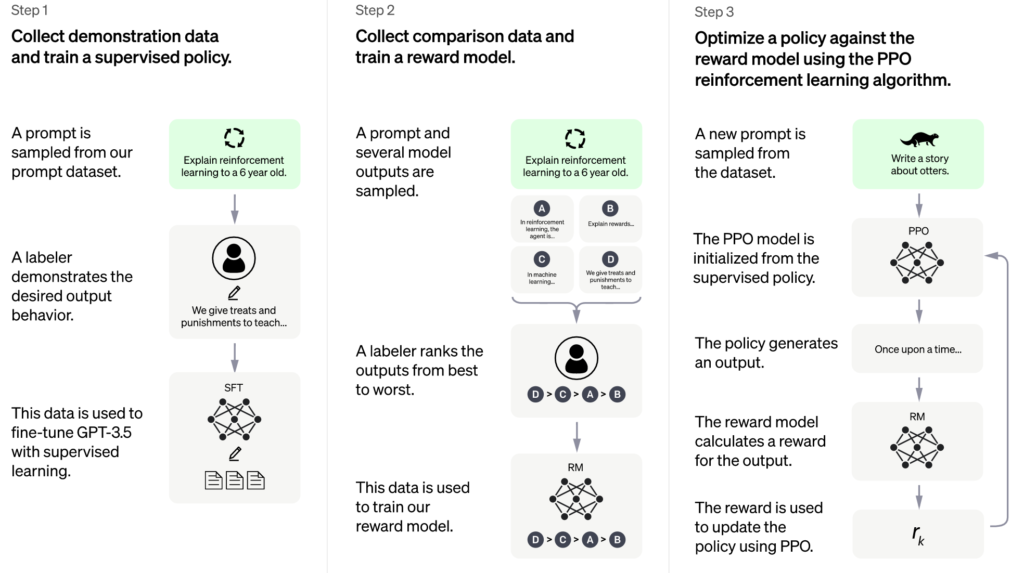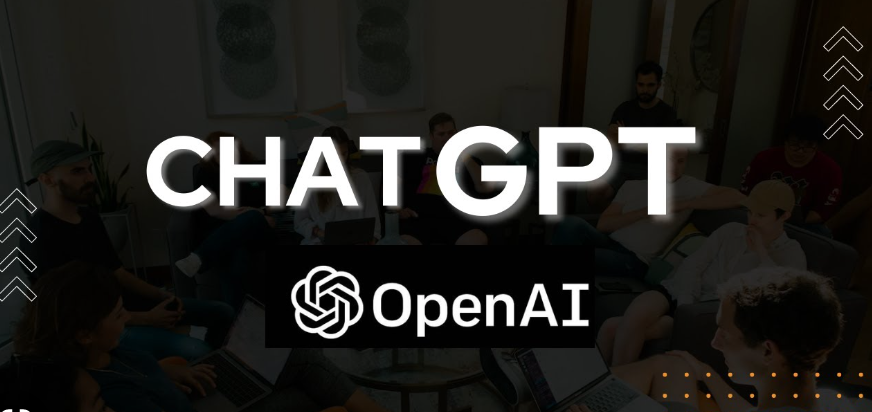OpenAI’s ChatGPT is a natural language processing (NLP) model. It is a variant of the popular GPT-3 language model created specifically for use in chatbot applications. ChatGPT can generate human-like responses to text input, making it useful for developing conversational chatbots that can converse with users in a natural and engaging manner. ChatGPT could be used for a variety of purposes, including customer service chatbots, virtual assistants, and language translation services.
Some of the potential advantages of using ChatGPT in chatbot applications are as follows:
ChatGPT has been trained on large amounts of conversational data, allowing it to generate responses that are more natural and engaging than those generated by other NLP models. This can aid in the creation of more satisfying and engaging user experiences.
Increased adaptability: Because ChatGPT can generate responses to a wide range of inputs, it can be used in a wide range of applications and scenarios. As a result, it’s a versatile tool for developers looking to build chatbots with a wide range of capabilities.
ChatGPT can save developers time and effort when developing chatbot applications because it is pre-trained and ready to use. This can help to speed up the development process and get chatbots up and running faster.
ChatGPT has been trained on massive amounts of data, allowing it to generate highly accurate responses to a wide range of inputs. This can aid in the development of chatbots that are more dependable and effective at handling user queries and requests.
Overall, ChatGPT can be a useful tool for developers who want to build chatbots that have natural and engaging conversational capabilities.
Here are some potential ChatGPT applications:
Chatbots for customer service: ChatGPT can be used to create chatbots that can handle customer inquiries and requests in a natural and engaging manner. These chatbots can be integrated into websites, mobile apps, and other platforms, allowing customers to get quick and easy answers to their questions.
ChatGPT can be used to create virtual assistants that can handle a variety of tasks such as scheduling appointments, setting reminders, and providing information. These assistants are compatible with a wide range of platforms, including smartphones, smart speakers, and other devices.
Language translation services: ChatGPT can be used to build chatbots that can translate text in real time from one language to another. Language learning tools, multilingual customer service chatbots, and other applications can benefit from this.
Chatbots for social media: ChatGPT can be used to create chatbots that can converse with users on social media platforms. These chatbots can be used for a variety of tasks, including product recommendations, answering frequently asked questions, and more.
Overall, ChatGPT can be applied to a wide range of natural language processing and chatbot development use cases.



